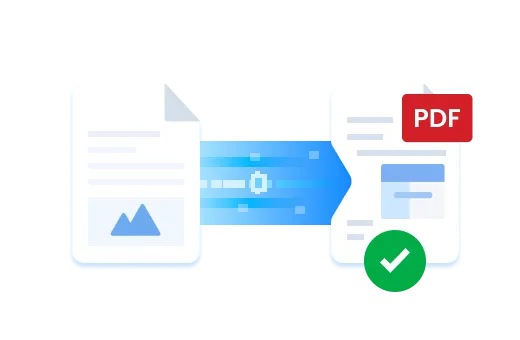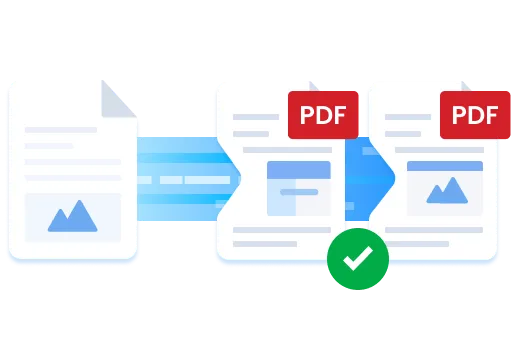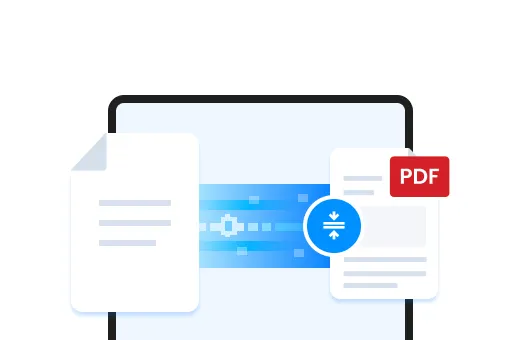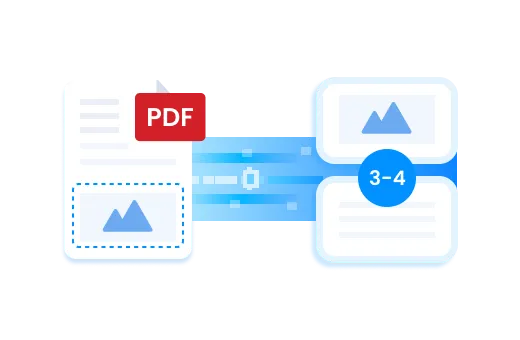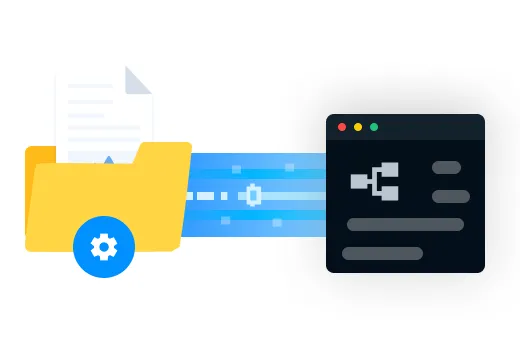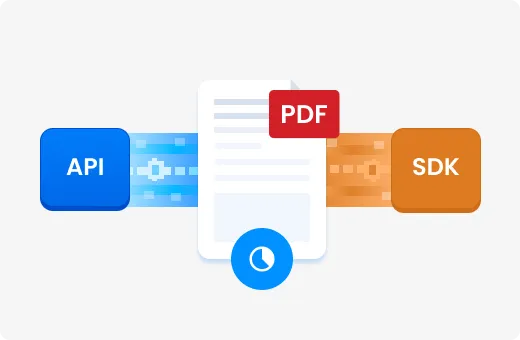Split PDF API & SDK
Divide Documents with Precision ControlTransform Your Document Workflows with
Precision PDF Splitting
The Split PDF API & SDK provides developers with robust capabilities to divide PDF documents into multiple smaller files based on specific pages or page ranges. This technology enables precise extraction of document sections, whether you need to separate chapters, remove confidential content, or create more manageable files for distribution.
Built for integration into desktop applications, web services, and automated document workflows, our Split PDF solution maintains document integrity while giving you complete control over page selection and organization. The API's asynchronous processing model handles documents up to 10MB efficiently, making it suitable for both individual document processing and high-volume batch operations.
Unlike generic PDF libraries that offer limited splitting functionality, our dedicated API and SDK deliver granular control over the splitting process with minimal implementation complexity, allowing you to focus on your core application logic rather than PDF manipulation details.
Key Technical Features
Flexible Page Selection Engine
The API's page selection engine accepts comma-separated page numbers and hyphenated ranges (e.g., "1,3,5-8,10"), giving you precise control over which pages to extract. Pages can be specified in any order and will appear in that order in the processed documents. When no page selection is provided, the engine automatically generates separate PDF files for each page in the original document.
POST/pdf-split/v1
Content-Type:multipart/form-data
...
file: [binaryPDFdata]
pages:"1,3,5-8,10"Asynchronous Processing Architecture
Our API implements an asynchronous processing model, returning an operation ID immediately while processing continues in the background. This architecture prevents timeouts on larger documents and enables your application to handle multiple splitting operations concurrently without blocking user interactions.
{
"id":"3fa85f64-5717-4562-b3fc-2c963f66afa6"
}
Status checking is handled through a separate endpoint:
GET/operation/v1/{operationId}/status
Custom
Output Labeling
Control the naming convention of your split documents with the labelStart parameter. The naming format follows '{nameOfOriginalDocument}.pdf - labelNumber', where labelNumber starts at the specified value (default 0) and increments by 1 for each subsequent document. This feature simplifies document organization and tracking in multi-file workflows.
POST /pdf-split/v1
Content-Type: multipart/form-data
file: [binaryPDFdata]
pages: "1-5,10-15,20-25"
labelStart: 100
Password-Protected Document Support
The API handles password-protected PDFs by accepting a password parameter in the request. This allows your application to process secured documents without requiring users to remove protection beforehand, maintaining document security throughout the workflow.
POST/pdf-split/v1
Content-Type: multipart/form-data
file: [binaryPDFdata]
password: "document_password"
pages: "1-10"Implementation Approaches
SDK Implementation
For desktop and server applications requiring deeper integration, our SDK provides native PDF splitting functionality with the same capabilities as the API. The SDK minimizes network overhead and allows for direct file system access, making it ideal for high-volume document processing scenarios.
RESTful API Integration
Integrate PDF splitting functionality directly into your applications with our RESTful API. The straightforward endpoint structure and multipart/form-data request format make it compatible with any programming language or framework that supports HTTP requests.
Sample Python Implementation:
import requests
url = "https://api.example.com/pdf-split/v1"
files = {"file": open("document.pdf", "rb")}
data = {"pages": "1-5,10,15-20", "labelStart": 1}
response = requests.post(url, files=files, data=data)
operation = response.json()
# Check operation status
status_url = "https://api.example.com/operation/v1/{operation['id']}/status"
status_response = requests.get(status_url)
Complementary PDF Capabilities
Document Recombination
Complement splitting operations with our PDF Merge functionality to recombine documents as needed. This bidirectional workflow enables advanced document composition scenarios where content is first separated, then selectively recombined into new documents.
Compression Options
For applications where file size is critical, our PDF compression capabilities can be applied before or after splitting operations. Advanced compression options are available through both the API and SDK implementations, giving you complete control over the balance between file size and document quality.
Technical FAQ
What is the maximum file size supported?
The API currently supports PDF files up to 10MB. For larger files, consider using the SDK implementation or breaking the process into multiple operations.
How are password-protected files handled?
Password-protected files require the password parameter to be included in the API request. The password is used only for document access and is not stored.
Can I extract specific pages from my PDF?
Yes, the pages parameter accepts individual page numbers and ranges in any order, allowing precise extraction of exactly the content you need.
Will the quality of my PDF pages be affected after extraction?
No, our format preservation technology maintains the original quality, layout, and interactive elements of the extracted pages.
How can I monitor the status of splitting operations?
Each operation returns an ID that can be used with the operation status endpoint to check progress and retrieve results when processing is complete.
